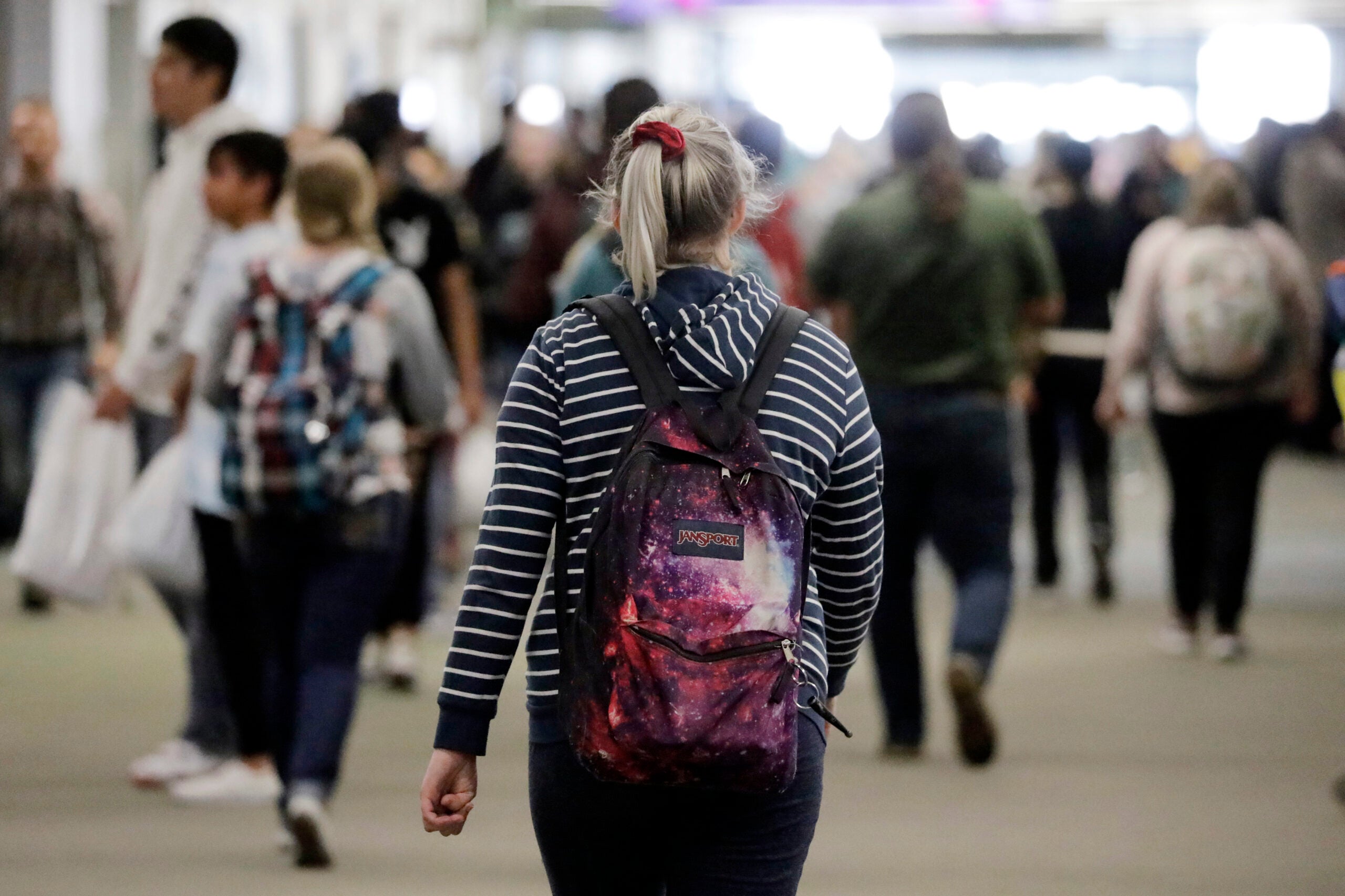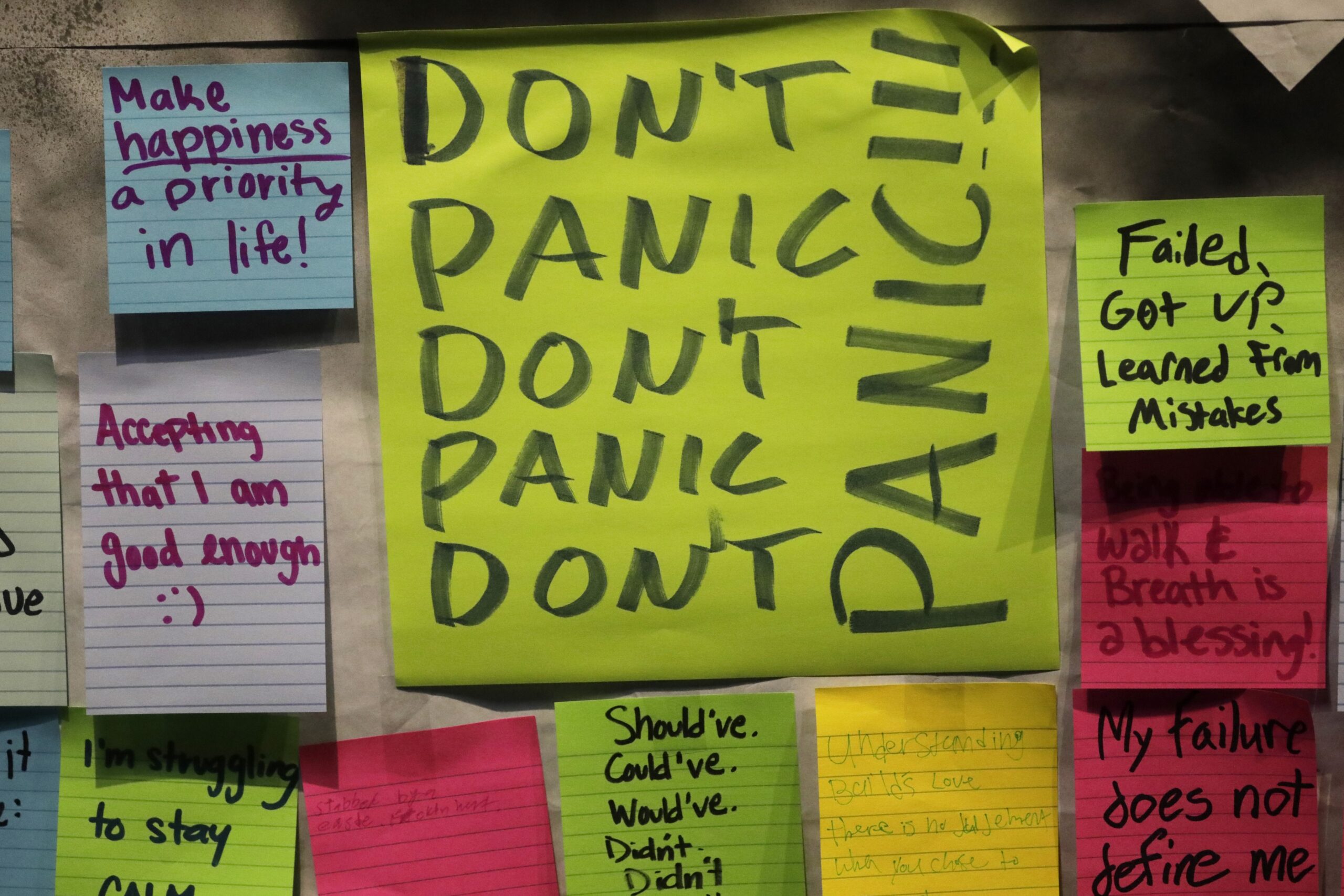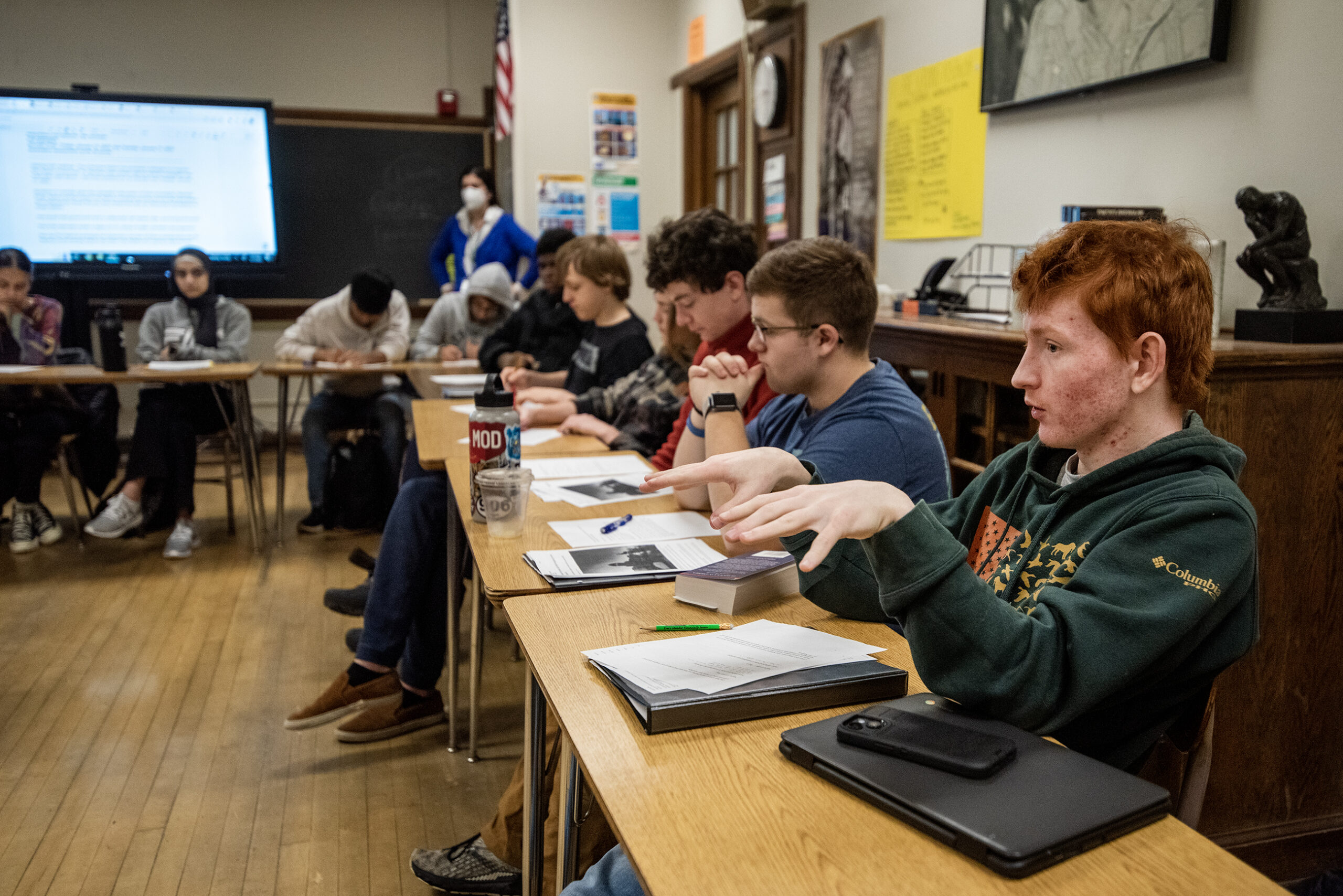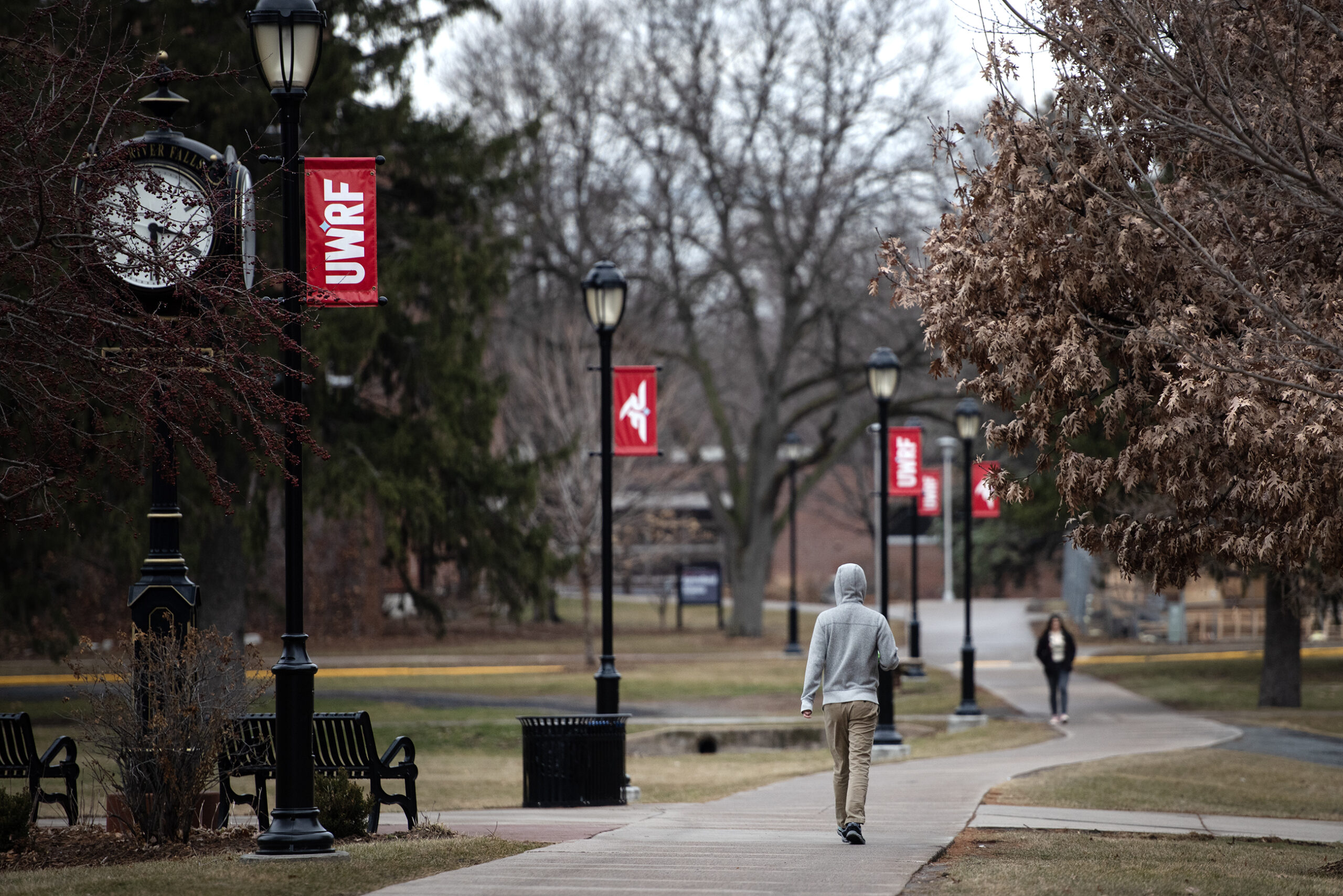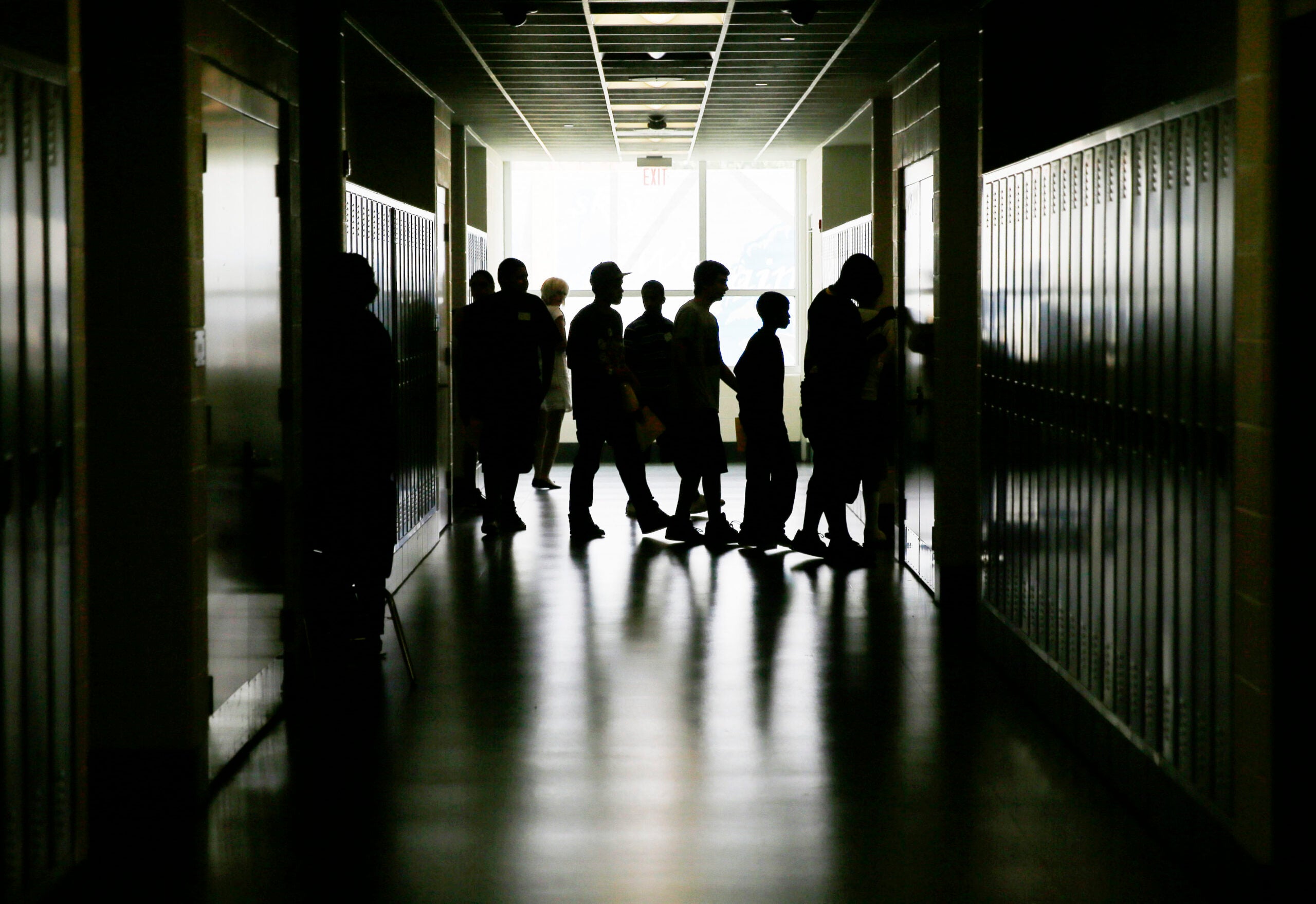Wisconsin teens continue to face significant mental health challenges, with girls and LGBTQ+ youth at the highest risk of depression, anxiety and self-harm, according to the newly-released state Youth Risk Behavior Survey.
The 2023 report surveyed 1,888 ninth through 12th graders in 42 public, charter and alternative high schools last spring.
More than half of students, 51.6 percent, reported experiencing anxiety. One in three students reported experiencing depression almost every day for two weeks in a row or more, and one in five students reported nonsuicidal self-harm.
News with a little more humanity
WPR’s “Wisconsin Today” newsletter keeps you connected to the state you love without feeling overwhelmed. No paywall. No agenda. No corporate filter.
Female and LGBTQ+ students reported a disproportionate number of challenges.
Girls were twice as likely to harm themselves as their male counterparts and 67 percent of female students reported experiencing anxiety and 45 percent reported depression.
The findings were presented during a press conference Tuesday in Madison.
“Our girls are in trouble,” said Amy Marsman, senior research analyst with the Wisconsin Office of Children’s Mental Health. “And our LGBT students are reporting startling rates of anxiety and depression as well.”
Seventy-nine percent of LGBTQ+ students surveyed reported experiencing anxiety, 63 percent reported experiencing depression and 40 percent reported considering suicide.
The survey also gave students a chance to answer open-ended questions anonymously.
One student wrote: “It’s a really hard thing to be transgender and gay in this state. I will always feels uncomfortable and unsafe here. No matter whether in school, in the store, or on the streets, I feel I’m always going to get judged or worst hurt.”
State agencies including, the Department of Public Instruction, the Office of Children’s Mental Health and the Department of Health Services use the population level data to assess how Wisconsin youth are feeling, especially post-COVID.
The survey has been conducted every other year since 1993.
State Superintendent Jill Underly said adults need to do better to support kids.
“We need to listen to them about their thoughts, their feelings, their concerns, and let them know they can trust you and that they and their mental health are a priority,” Underly said. “It’s not just that we can do better. It’s that we must do better. And we have the knowledge and resources to do just that.”
One indicator closely linked to mental health is feelings of belonging. Overall, 54 percent of students agreed or strongly agreed they belong at their school. But that number has continuously decreased since 2017, when it was at a high of 71 percent.
Generally, students who report having strong support and belonging are less likely to engage in risky behaviors including alcohol and drug use, risky sexual behavior and physical fights, according to the report.
The survey found about an equal number, 26 percent and 28 percent respectively, of students drinking alcohol or using marijuana.
Only 3 percent of students reported smoking cigarettes, while 34 percent reported vaping at least once.
Another student comment said GenZ is struggling: “We are rapidly becoming the most depressed and zombied age group of all … The technology you have built has given us more self-hatred, unachievable expectations, new mental illnesses and has crushed our sense of communication … Please understand that we are trying our best to find ourselves and it is difficult when the world that we look up to can be so cruel, and we feel we need to go through it alone.”
If you are struggling with thoughts of suicide, call 988 for the Suicide and Crisis Lifeline. You can also text HOPELINE to 741741 for the free and confidential Crisis Textline.
Wisconsin Public Radio, © Copyright 2025, Board of Regents of the University of Wisconsin System and Wisconsin Educational Communications Board.

